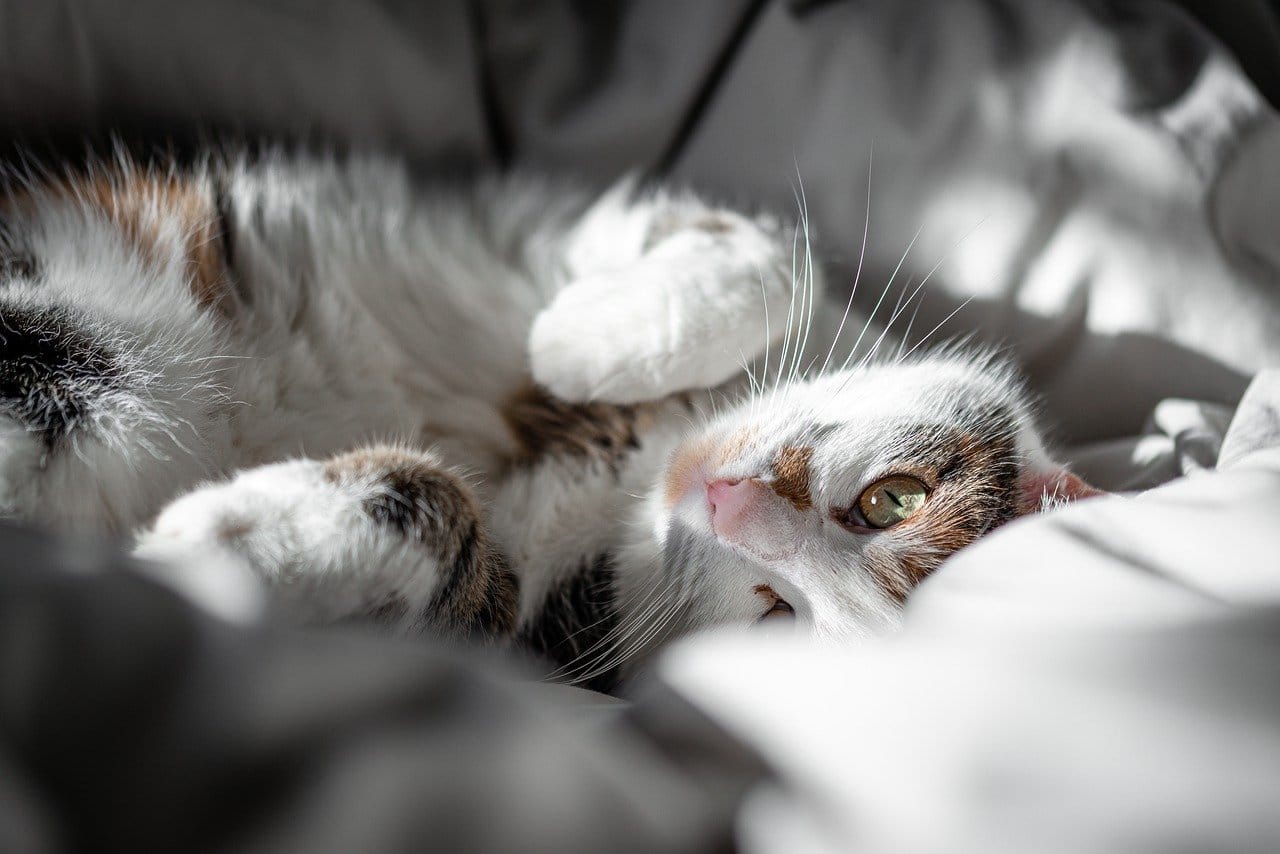When Can I Get My Cat Spayed After Having Kittens? Learn the ideal timeframe for cat spaying after kittens. Cat Spaying After Kittens & Postpartum Cat Spaying: Get expert advice for your feline’s health & well-being.
When Can I Get My Cat Spayed After Having Kittens? A Comprehensive Guide
Congratulations on your new kittens! Bringing new life into the world is a joyous occasion, but as a responsible pet owner, you’re likely now wondering about the next step: spaying your cat. This article will delve into the crucial question of When Can I Get My Cat Spayed After Having Kittens, providing a clear and comprehensive understanding of the timing, the procedure, and post-operative care. We’ll also cover Cat Spaying After Kittens and Postpartum Cat Spaying in detail.
Understanding the Optimal Timing for Postpartum Spaying
The ideal time to spay your cat after she’s had kittens is a crucial consideration. Spaying too soon can lead to complications, while delaying it excessively risks future unwanted litters. Veterinarians generally recommend waiting until your cat has completely weaned her kittens. This typically occurs around 6-8 weeks of age for the kittens, though some kittens may wean earlier or later depending on their individual development. Waiting until weaning ensures your cat’s body has fully recovered from the demands of pregnancy and lactation.
The Risks of Spaying Too Early
Spaying a cat too soon after giving birth carries potential risks. Her body needs time to heal and regain its strength. Premature spaying can increase the risk of infection and complications during the surgery. The hormonal changes associated with pregnancy and lactation can also make the cat more vulnerable to surgical challenges during this period. It’s important to prioritize your cat’s well-being and allow ample time for recovery.
The Importance of Waiting Until Weaning
Waiting until your kittens are weaned is essential for several reasons. Firstly, it allows your cat’s body to naturally recover from the stress of pregnancy and nursing. Secondly, it ensures the kittens have received adequate nutrition and antibodies through their mother’s milk, which are vital for their immune system development. If you’re concerned about your cat’s ability to care for her kittens or you observe any signs of neglect, such as cats eating their kittens or a lack of maternal care, consult your veterinarian immediately.
What Happens During Postpartum Cat Spaying?
The procedure for spaying a cat after she’s given birth is essentially the same as spaying a non-pregnant cat. The veterinarian will perform a surgical removal of the ovaries and uterus. This prevents future pregnancies and also helps mitigate the risk of certain cancers and uterine infections. Pre-operative blood tests may be recommended to ensure your cat’s overall health is suitable for the surgery. You can learn more about the cost of the procedure by visiting our articles on how much does it cost to get a cat spayed and how much to spay a cat.
Post-Operative Care After Cat Spaying After Kittens
After the surgery, your cat will require careful post-operative care. Your veterinarian will provide specific instructions, but generally, this involves keeping your cat quiet and comfortable, monitoring the incision site for signs of infection, and administering any prescribed pain medication. It’s also vital to manage your cat’s interaction with her kittens, especially if she’s showing any signs of discomfort. You can expect a period of recovery, so patience and gentle care are key to ensuring a smooth healing process.
Addressing Potential Complications
While rare, complications can occur after postpartum spaying. These may include infections at the incision site, excessive bleeding, or adverse reactions to anesthesia. Promptly contact your veterinarian if you notice any signs of complications, such as excessive licking of the incision, swelling, discharge, lethargy, or loss of appetite. Early intervention is crucial in managing any potential issues effectively.
The Importance of Spaying to Prevent Unwanted Litters
Spaying your cat is a responsible act that prevents unwanted pregnancies and contributes to reducing pet overpopulation. The number of stray and abandoned animals is a significant concern, and spaying your cat is a simple step you can take to reduce the strain on animal shelters and rescue organizations. While you may have enjoyed the experience of raising kittens, it’s equally important to understand the long-term implications of uncontrolled breeding. Consider the resources and care necessary for multiple litters of kittens over your cat’s lifetime.
Considering the Kittens: When Can Kittens Be Fixed?
While this article focuses on spaying your cat after giving birth, it’s important to consider the timing of neutering or spaying your kittens as well. This will prevent them from contributing to pet overpopulation and reduce the risk of certain health problems later in life. To learn more about the appropriate age for fixing your kittens, we recommend reading our article on when can kittens be fixed.
Addressing Male Cats: Do Male Cats Eat Kittens?
It’s a misconception that only female cats may harm their offspring. It is important to understand that while less common, male cats can sometimes also eat kittens under specific circumstances. Understanding this aspect of feline behavior can be crucial in managing a multi-cat household.
Finding a Reputable Veterinarian
Choosing a reputable veterinarian is crucial for your cat’s well-being. Look for a veterinarian with experience in feline reproductive health and a good track record of performing spaying procedures. Your vet will be able to answer all of your questions about Cat Spaying After Kittens, Postpartum Cat Spaying, and other aspects of feline healthcare.
External Resources:
For further information on cat spaying, consider consulting the following reputable sources:
ASPCA – This site provides comprehensive information on spaying and neutering cats.
American Veterinary Medical Association (AVMA) – Offers valuable information on various aspects of pet care, including spaying and neutering.
Conclusion: Planning for Your Cat’s Postpartum Spaying
Spaying your cat after she’s had kittens is a crucial aspect of responsible pet ownership. By understanding the optimal timing, the surgical procedure, and the necessary post-operative care, you can ensure your cat’s health and well-being. Remember to consult with your veterinarian to determine the best time for your cat’s spaying and to address any concerns you may have. Proper planning and communication are vital steps in providing the best possible care for your cat and her kittens.
Share Your Experience!
Have you recently had your cat spayed after giving birth? We’d love to hear about your experience with When Can I Get My Cat Spayed After Having Kittens, Cat Spaying After Kittens, or Postpartum Cat Spaying. Share your insights, tips, and any challenges you faced in the comments below. Your story can help other pet owners navigate this important decision.

Frequently Asked Questions: Cat Spaying After Kittens
- When can I get my cat spayed after having kittens?
- Ideally, your cat should be spayed 4-6 weeks after her kittens are weaned, typically around 8 weeks of age. This allows her body to recover from pregnancy and nursing. Cat spaying after kittens should be discussed with your vet.
- Is it safe to spay a cat immediately after giving birth?
- No, spaying immediately postpartum is risky. Your cat needs time to recover from the physical demands of pregnancy and nursing. Postpartum cat spaying too early can lead to complications.
- What are the risks of spaying a cat too soon after having kittens?
- Spaying too early can increase the risk of infection, excessive bleeding, and other complications. It’s crucial to wait until your vet deems it safe. Proper timing is key for safe cat spaying after kittens.
- My kittens are only 4 weeks old, can my cat be spayed?
- Likely not yet. It’s best to wait until the kittens are weaned and at least 6-8 weeks old before scheduling the When Can I Get My Cat Spayed After Having Kittens procedure. Consult your vet.
- How long should I wait after weaning to spay my cat?
- Generally, a 2-week waiting period after weaning is sufficient, bringing the total to 6-8 weeks postpartum. This allows for proper recovery and healing. This timeframe is important for safe Postpartum cat spaying.
- What if my cat is still nursing at 6 weeks?
- If your kittens are still nursing heavily at 6 weeks, discuss with your vet. They may suggest a slightly longer waiting period before cat spaying after kittens.
- Can I breastfeed my kittens after my cat is spayed?
- Yes, spaying doesn’t immediately stop milk production. Your cat will likely continue nursing for a short period after the procedure.
- Does spaying affect my cat’s milk production?
- Spaying may slightly reduce milk production, but generally, it shouldn’t significantly impact the kittens’ ability to nurse during the short period after surgery.
- My vet says my cat can be spayed at 4 weeks postpartum, is this okay?
- While some vets may suggest 4 weeks, it’s essential to trust your vet’s judgment, but many prefer 6-8 weeks to ensure complete recovery. Discuss any concerns about the timing of When Can I Get My Cat Spayed After Having Kittens.
- What should I expect after my cat’s spaying?
- Expect some post-operative swelling, lethargy, and possible discomfort. Your vet will provide post-operative care instructions. Ensure she gets plenty of rest and follows your vet’s guidelines following Postpartum cat spaying.

When Can I Get My Cat Spayed After Having Kittens?
Spaying your cat after she’s had kittens is a crucial step in responsible pet ownership. It prevents future unwanted pregnancies and associated health risks. But timing is key. Generally, you should wait until your cat has fully weaned her kittens, typically around 8 weeks of age. This allows her body to recover from childbirth and breastfeeding. Forcing a spay too early can cause complications. Before making any decision it is always wise to consult your veterinarian. They can assess your cat’s individual health and advise on the best time for the procedure.
The cost of spaying can vary depending on your location and the vet’s fees. You can find information on typical costs by checking out this helpful resource about how much it costs to get a cat spayed: How much does it cost to get a cat spayed? or How much to spay a cat? Planning for the expenses beforehand is important. Remember that spaying is a worthwhile investment in your cat’s long-term health and well-being.
While it is less common, there are rare instances where a mother cat might exhibit unusual behavior. Some mothers have been known to harm or even, in extreme cases, eat their kittens. If you are concerned about your cat’s behavior toward her kittens, please consult a veterinarian immediately. You can read more about this concerning behavior here: Do cats eat their kittens?. Similarly, Do male cats eat kittens? discusses the potential dangers male cats can pose to kittens. Early intervention is critical in such situations.
Once your kittens are weaned, it’s time to consider getting them spayed or neutered as well. This prevents future generations of unwanted animals and reduces the risk of certain health problems. A general guideline is to spay or neuter kittens between 8-12 weeks of age. You can find more details about the ideal timing for fixing your kittens here: When can kittens be fixed? Scheduling your cat and kittens’ procedures together can often help streamline the process.
Remember, spaying your cat after she has her kittens is an essential part of responsible pet ownership. It’s important to prioritize your cat’s health and well-being, and choosing the right time for the procedure is crucial. Always consult your veterinarian to ensure a safe and smooth recovery for your cat.
When Can I Get My Cat Spayed After Having Kittens, Cat Spaying After Kittens, Postpartum Cat Spaying